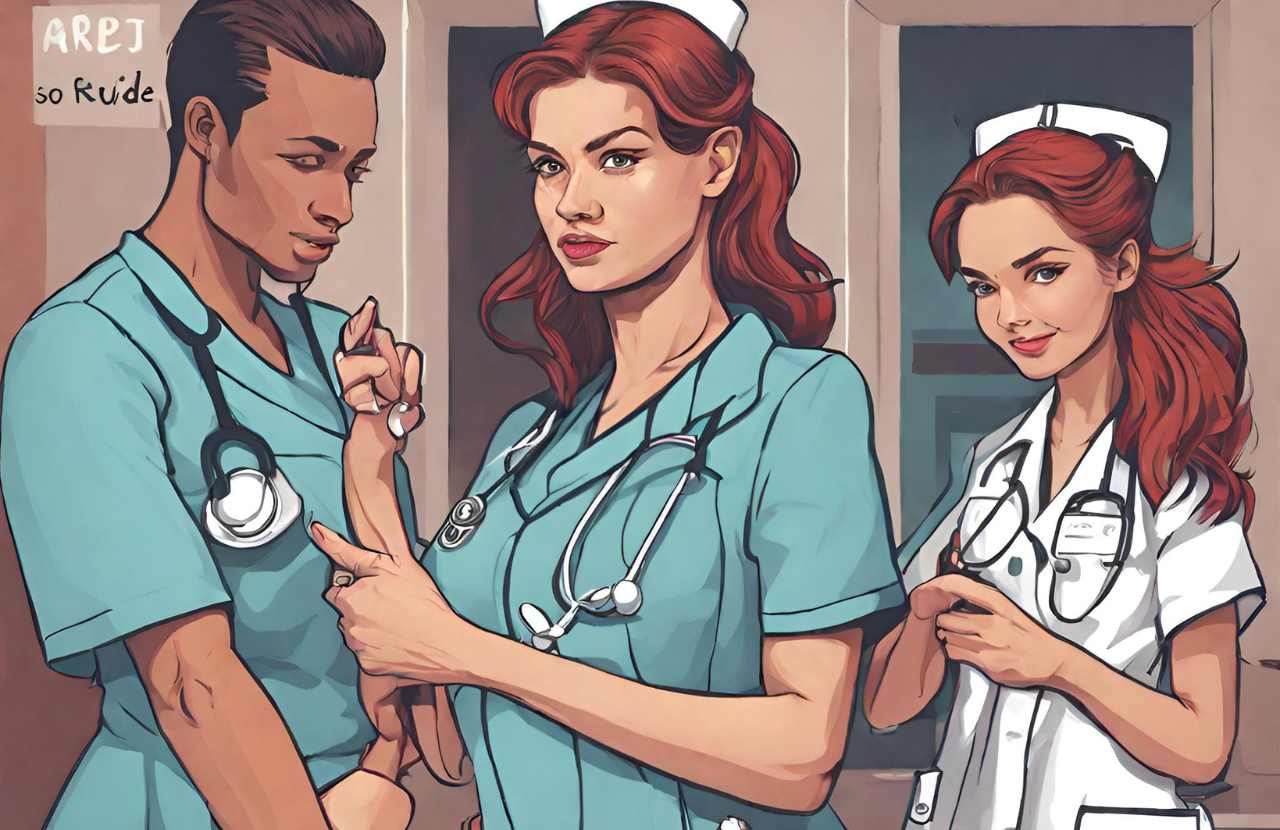It’s not uncommon to come across the sentiment, “Why are nurses so rude?” While it’s essential to remember that this does not apply to all nursing professionals, it’s a topic worth exploring.
Firstly, the perception of nurses being rude can often be attributed to the high-stress nature of their job. With long hours, high patient loads, and the constant pressure of making life-changing decisions, it’s not surprising that some may develop a hard exterior.
Finally, it’s crucial to understand that the rudeness experienced is usually unintentional. Most nurses are incredibly dedicated and caring individuals, and any perceived rudeness often stems from their need to prioritize patient safety over pleasantries.
Why are Nurses so Rude?
Several key factors contribute to the perception of nurses being perceived as rude:
- Stressful working conditions
- Long working hours
- High patient-to-nurse ratio
- A need to prioritize patient safety over pleasantries
Stressful Working Conditions
Nursing is an inherently stressful profession. Nurses are often on the front lines, dealing with emergencies, making critical decisions, and coping with the emotional toll of caring for the sick and the injured. This can lead to both physical and emotional exhaustion. When under such intense pressure, maintaining a cheerful demeanor can be challenging, leading to instances where nurses may come across as rude.
Long Working Hours
Long, irregular working hours and frequent night shifts add another layer of stress. Nurses often work 12-hour shifts or longer, and the physical exhaustion can take a toll on their emotional well-being. When one is physically drained, it becomes difficult to always maintain a pleasant tone, and unintentionally, nurses may come across as brusque or unfriendly.
High Patient-to-Nurse Ratio
In many medical facilities, especially in under-resourced settings, there is often a high patient-to-nurse ratio. This means that nurses have to attend to numerous patients in a limited time frame. In such scenarios, nurses may lack the time for pleasantries or long conversations, which can sometimes be perceived as rudeness.
Prioritizing Patient Safety Over Pleasantries
At the end of the day, a nurse’s primary duty is to ensure the safety and well-being of their patients. This sometimes requires them to be firm and authoritative, especially when dealing with non-compliant patients or when adhering to strict protocols. Some may misinterpret this firmness for rudeness.
How to Deal with Rude Nurses as a Patient?
Managing interactions with healthcare professionals, especially when you’re feeling unwell, can be challenging. Here are some strategies to effectively deal with situations where you may perceive a nurse as being rude.
- Understanding Their Situation: First and foremost, try to understand the challenges that nurses face in their everyday work. A bit of empathy goes a long way in solving issues.
- Communicate Openly: If a nurse’s behavior bothers you, communicate your feelings gently but firmly. Your feelings are important too.
- Ask for Clarification: Sometimes, what you perceive as rudeness might just be a nurse’s attempt at being firm. If you’re not sure, ask for clarification.
- Involve a Third Party: If the issue continues, involve a mediator like a hospital administrator or social worker.
- File a Formal Complaint: As a last resort, if you still feel that the nurse’s behavior is inappropriate, you can file a formal complaint.
Understanding Their Situation
Nurses have one of the most challenging jobs in the healthcare sector. Their work involves long hours, high levels of stress, and dealing with sick or injured people daily. Understanding their circumstances can help you interpret their actions more empathetically. They are human like us, and their seeming rudeness could be a reaction to their stressful work environment.
Communicate Openly
Open communication is key to resolving conflicts. If a nurse’s behavior affects your comfort or wellbeing, express your feelings to them. Use “I” statements to express your feelings in a non-blaming way. For example, say “I feel upset when you speak to me in that tone,” instead of “You are being rude.”
Ask for Clarification
Remember, what you perceive as rudeness might be the nurse trying to maintain professionalism or being firm. If you’re not sure about a nurse’s intent, ask for clarification. They may simply be trying to ensure your safety and good health.
Involve a Third Party
If your attempts at resolving the conflict directly with the nurse aren’t successful, consider involving a third party. This could be a hospital administrator, a patient advocate, or a social worker. They can provide a neutral perspective and facilitate a resolution.
File a Formal Complaint
If the nurse’s behavior continues to be inappropriate despite your attempts at resolution, you have the right to file a formal complaint. Each healthcare facility has a process for filing grievances. Make sure you document each incident clearly and factually as this will strengthen your case and ensure appropriate action is taken.
Final Words
In conclusion, while it can seem as though nurses are sometimes rude, it’s often a result of the high-stress nature of their job. The perception of nurses being rude is usually unintentional and often a consequence of stressful working conditions, long hours, high patient loads, and the need to prioritize patient safety. Understanding these factors can help patients and their families view these instances with more empathy and less judgment, recognizing the immense pressures that these healthcare professionals often operate under.

